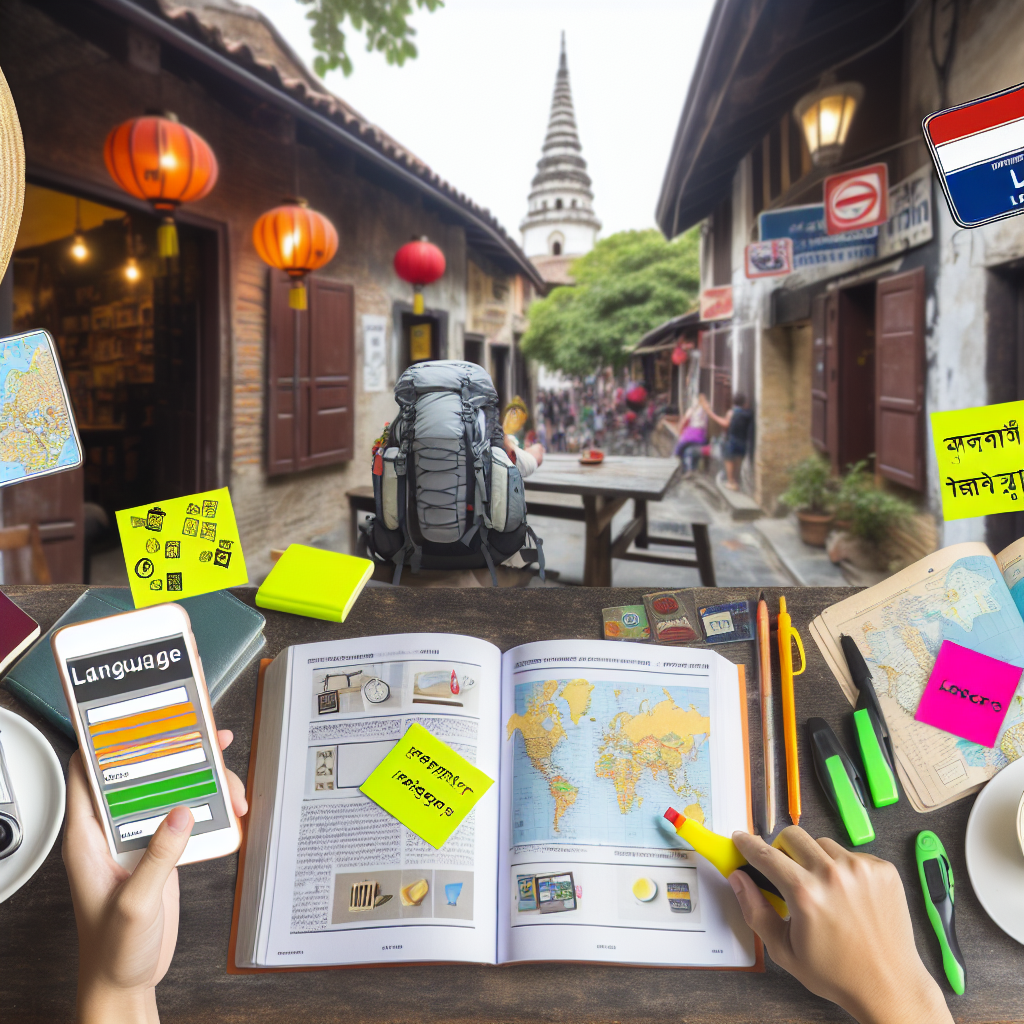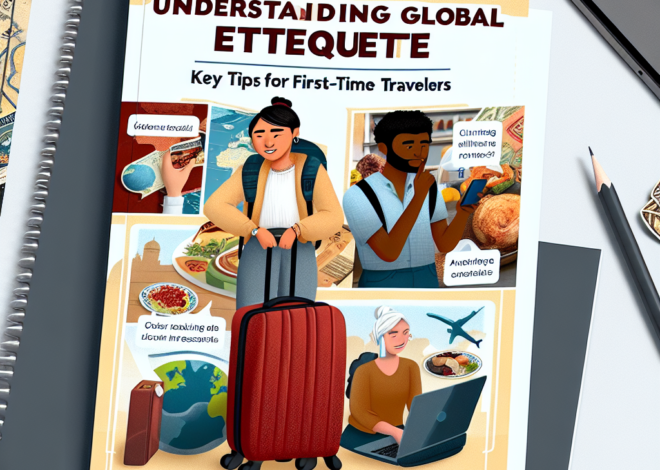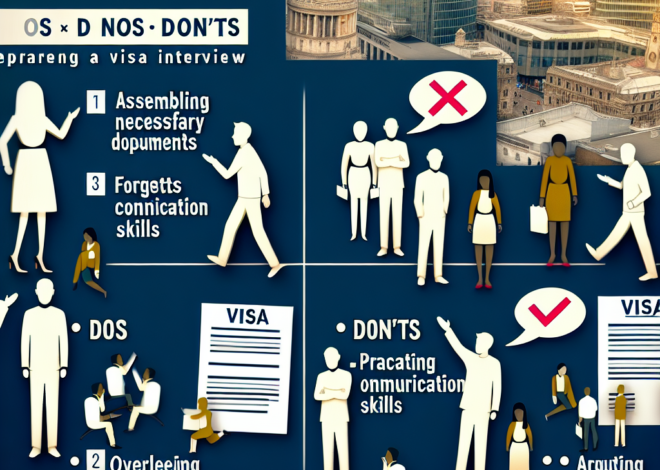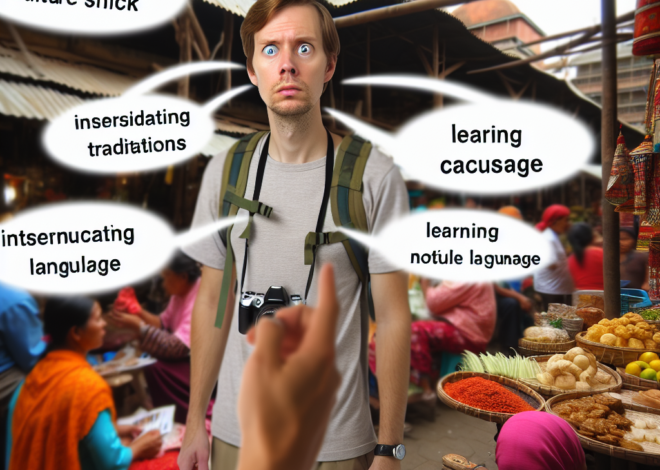
Tips for learning a foreign language before moving abroad
-
Table of Contents
“Unlock the World: Master the Language Before You Move!”
Introduction
Learning a foreign language before moving abroad can significantly enhance your experience in a new country. It not only facilitates smoother communication with locals but also deepens your understanding of the culture and customs. Mastering a new language can be daunting, but with the right strategies, it becomes an achievable and rewarding endeavor. Here are some practical tips to help you effectively learn a foreign language before your move, ensuring a smoother transition and a richer cultural experience in your new home.
Essential Language Skills for Daily Interactions Abroad
Mastering the essential language skills for daily interactions abroad is a crucial step for anyone planning to move to a new country. The ability to communicate effectively in the local language not only eases the transition but also enriches the experience, allowing for a deeper understanding of the culture and community. Here are some practical tips to help you acquire the necessary language skills before your move.
Firstly, it is important to establish a solid foundation in the basics of the language. Focus on learning key phrases and vocabulary that are pertinent to everyday situations, such as greetings, directions, shopping, and dining. This targeted approach not only boosts your confidence but also ensures that you are prepared for common daily interactions. Additionally, understanding basic grammar rules can help you construct sentences correctly, making your communication clearer and more effective.
Moreover, integrating language learning into your daily routine can significantly enhance your proficiency. This could involve listening to music, watching films or TV shows, and reading books in the target language. Such immersion techniques expose you to the language in various contexts, improving your listening and comprehension skills. Over time, this exposure helps in acquiring a natural sense of the language’s rhythm and intonation, which are crucial for effective verbal communication.
Another effective strategy is to engage in language exchange or conversation practice with native speakers. This can be facilitated through language exchange websites, community groups, or social media platforms. Speaking regularly with native speakers allows you to practice the language in a real-world context, helping you to refine your pronunciation and conversational skills. It also provides valuable feedback on your language use, which is essential for improvement.
Furthermore, using language learning apps and online courses can provide structured learning and flexibility. Many of these resources offer interactive exercises and quizzes that reinforce learning and make the process engaging. They often include spoken language practice, which is vital for developing speaking and listening skills. Choose resources that align with your learning style and language level to ensure that you are getting the most out of your study time.
Additionally, setting realistic goals and tracking your progress is crucial in maintaining motivation and ensuring steady improvement. Whether it’s mastering a set number of phrases each week, having a five-minute conversation in the target language, or understanding a full article, clear objectives give you something to strive for and celebrate when achieved. This not only keeps your learning on track but also provides a sense of accomplishment.
Lastly, be patient and persistent. Language learning is a gradual process that requires time and effort. There will be challenges and moments of frustration, but it is important to stay committed and keep practicing. Remember, every bit of effort counts, and even small daily interactions in the new language can significantly improve your skills over time.
In conclusion, acquiring language skills for daily interactions abroad involves a combination of practical strategies and a commitment to continuous learning. By building a strong foundation, integrating the language into your daily life, practicing with native speakers, utilizing digital resources, setting achievable goals, and maintaining persistence, you can enhance your ability to communicate effectively in a new country. This preparation will not only facilitate your everyday activities but also deepen your connection to the new culture and community you are about to become part of.
Cultural Nuances and Language Learning
Title: Tips for Learning a Foreign Language Before Moving Abroad
Embarking on the journey of learning a foreign language before moving abroad can be both exhilarating and daunting. The process not only involves grasping grammar and vocabulary but also understanding the subtle cultural nuances that define a language. To navigate this complex terrain, one must adopt a multifaceted approach that integrates practical language skills with cultural immersion.
Firstly, it is essential to establish a solid foundation in the basic grammar and vocabulary of the target language. This foundational knowledge facilitates easier communication and helps learners gradually immerse themselves in more complex linguistic structures. Language learning apps and textbooks are valuable resources for building this base. However, mere textbook learning is often not sufficient. Language is a living entity, best learned through interaction and practice.
To enhance language acquisition, incorporating multimedia resources such as films, music, and podcasts in the target language can be highly beneficial. These resources provide contextual learning opportunities that textbooks cannot offer. They expose learners to the language as it is naturally spoken, acquainting them with various dialects and linguistic styles. Moreover, they offer insights into the cultural contexts in which certain phrases or expressions are used, which is crucial for understanding the cultural underpinnings of the language.
Another effective strategy is engaging directly with native speakers. Language exchange platforms offer opportunities to practice with native speakers who are also learning your language. This reciprocal arrangement can be incredibly fruitful, as it allows for real-time feedback and the chance to refine pronunciation and conversational skills. Furthermore, conversations with native speakers can reveal cultural insights and colloquialisms that are often not covered in formal language courses.
Additionally, immersing oneself in the culture of the target language can significantly enhance language learning. This can be achieved by participating in cultural activities and events related to the language. For instance, attending a cultural festival or cooking class can provide a more nuanced understanding of the language’s cultural context. Such experiences not only make learning more enjoyable but also deepen one’s cultural appreciation, making the language more meaningful.
Moreover, setting realistic goals and maintaining a regular study schedule are crucial for sustained learning. Language learning is a gradual process, and consistent effort over time yields the best results. Setting daily or weekly goals can help maintain motivation and ensure steady progress. Whether it’s mastering a set number of words each week or having a five-minute conversation in the target language, clear objectives provide direction and a sense of achievement.
Lastly, patience and perseverance are key in learning a new language. It is a journey fraught with challenges and setbacks. However, each mistake provides a learning opportunity, and persistence is essential. Over time, the accumulation of small victories leads to significant mastery of the language.
In conclusion, learning a foreign language before moving abroad is a multifaceted endeavor that extends beyond mere vocabulary acquisition. It involves an immersive engagement with both the language and its cultural context. By combining practical language learning techniques with cultural immersion, setting clear goals, and maintaining perseverance, one can significantly enhance their proficiency and readiness for a smooth transition to living abroad. This holistic approach not only prepares individuals linguistically but also culturally, paving the way for a more enriching and fulfilling experience abroad.
Utilizing Technology for Language Acquisition
In an era where globalization is shrinking the world, learning a foreign language has become more than just a cultural nicety; it’s a crucial tool for anyone planning to move abroad. Technology, with its ever-evolving landscape, offers a plethora of resources that can significantly ease the language learning process. Understanding and utilizing these technological tools effectively can transform the daunting task of acquiring a new language into a more manageable and enjoyable journey.
One of the most accessible forms of technology for language learning is mobile applications. Apps like Duolingo, Babbel, and Rosetta Stone are designed to make learning a new language both engaging and convenient. These applications use techniques such as gamification to keep learners motivated and interactive exercises that enhance vocabulary and grammar skills. Moreover, they offer personalized learning experiences, adapting their curriculum to the learner’s pace and level of understanding, which is crucial for building confidence in a new language.
In addition to mobile apps, online courses and websites are invaluable resources. Platforms such as Coursera and EdX offer courses created by universities and language experts from around the world. These courses often include video lectures, quizzes, and peer interactions, providing a structured learning environment that mimics a classroom setting. Websites like BBC Languages or Open Culture provide free resources and comprehensive guides to learning new languages, including audio recordings and pronunciation practice, which are essential for mastering the spoken aspects of a language.
Another significant technological advancement is the use of language learning software that incorporates speech recognition technology. This technology allows learners to speak directly into a microphone and receive immediate feedback on their pronunciation, accent, and fluency. Such instant feedback is invaluable as it helps to correct mistakes in real-time, thereby improving speaking skills more effectively than traditional learning methods.
Social media platforms also play a crucial role in language acquisition. They offer an opportunity to connect with native speakers and language learners from around the world. Engaging with language communities on platforms like Facebook, Reddit, or even language exchange sites like Tandem can provide practical, everyday use of the language in a more informal setting. This not only helps in improving language skills but also in understanding cultural nuances, which are often not covered in structured language courses.
Furthermore, podcasts and YouTube channels dedicated to language learning can be particularly beneficial for auditory learners. These platforms offer content ranging from beginner to advanced levels and cover a wide array of topics, making it easy to find material that interests you. Listening to these during commutes or while performing daily tasks is an excellent way to immerse oneself in the language and improve comprehension skills.
Lastly, virtual reality (VR) offers a cutting-edge way to learn languages by simulating real-life interactions in a controlled environment. Although still in its nascent stages, VR technology has the potential to revolutionize language learning by providing immersive experiences where learners can practice new languages in various scenarios, from ordering food in a restaurant to conducting business meetings.
In conclusion, technology provides a diverse range of tools that can cater to different learning styles and needs. By integrating these technological resources into your study routine, you can significantly enhance your ability to learn a new language effectively and efficiently before moving abroad. This not only prepares you for basic communication but also deepens your understanding of the cultural context of the language, thereby smoothing the transition into a new country.
Immersive Techniques for Rapid Language Learning
Title: Tips for Learning a Foreign Language Before Moving Abroad
Embarking on the journey of learning a foreign language before moving abroad can be both exhilarating and daunting. However, with the right strategies, you can significantly enhance your language skills and ease your transition into a new culture. Immersive techniques, which involve surrounding yourself with the language in various forms, are particularly effective for rapid language acquisition.
One of the most impactful immersive techniques is to engage with media in the target language. This can include watching films, listening to music, and following news outlets. Initially, it might seem challenging to understand everything; however, the contextual clues can greatly aid in comprehension and vocabulary acquisition. Over time, regular exposure to the language through these channels not only improves listening skills but also helps you acquire a natural sense of the language’s rhythm and intonation.
In addition to media consumption, actively using the language is crucial. Language learning platforms and mobile apps offer interactive opportunities to practice both written and spoken language. These tools often use algorithms to adapt to your learning pace, providing personalized sessions that are both challenging and rewarding. Moreover, they can be conveniently accessed from anywhere, making regular practice easy to incorporate into your daily routine.
Another effective method is to engage in language exchange meetups or online conversations with native speakers. This real-time communication allows you to practice the language in a dynamic setting, where quick thinking and adaptation are necessary. It also provides the invaluable benefit of cultural exchange, where learning extends beyond words and phrases to include gestures, expressions, and cultural nuances that are often not covered in traditional language courses.
Furthermore, setting specific, achievable goals can dramatically increase your language learning efficiency. Whether it’s mastering a certain number of words each week or being able to hold a five-minute conversation by the end of the month, clear objectives provide motivation and a sense of direction. Tracking your progress towards these goals can also be incredibly satisfying and encouraging.
Lastly, immersion doesn’t have to wait until you move abroad. Creating a language-rich environment at home can simulate the experience of being in a country where the language is spoken. Labeling household items with their names in the foreign language, setting your devices to operate in that language, and even following recipes in the target language are all strategies that mimic immersion and can accelerate your learning process.
In conclusion, while the task of learning a new language before moving abroad is no small feat, employing immersive techniques can make the process more effective and enjoyable. By integrating the language into your daily life through media, interactive tools, and real-life practice, you can build a strong linguistic foundation. Additionally, by setting clear goals and creating an immersive environment at home, you are not only preparing yourself linguistically but also culturally, paving the way for a smoother transition into your new life abroad.



